Frequently asked questions about Hearing Aids
Have you noticed deterioration in your hearing? Do you feel that your difficulty hearing is affecting your social and personal life? We want to find the best solution to your problem.
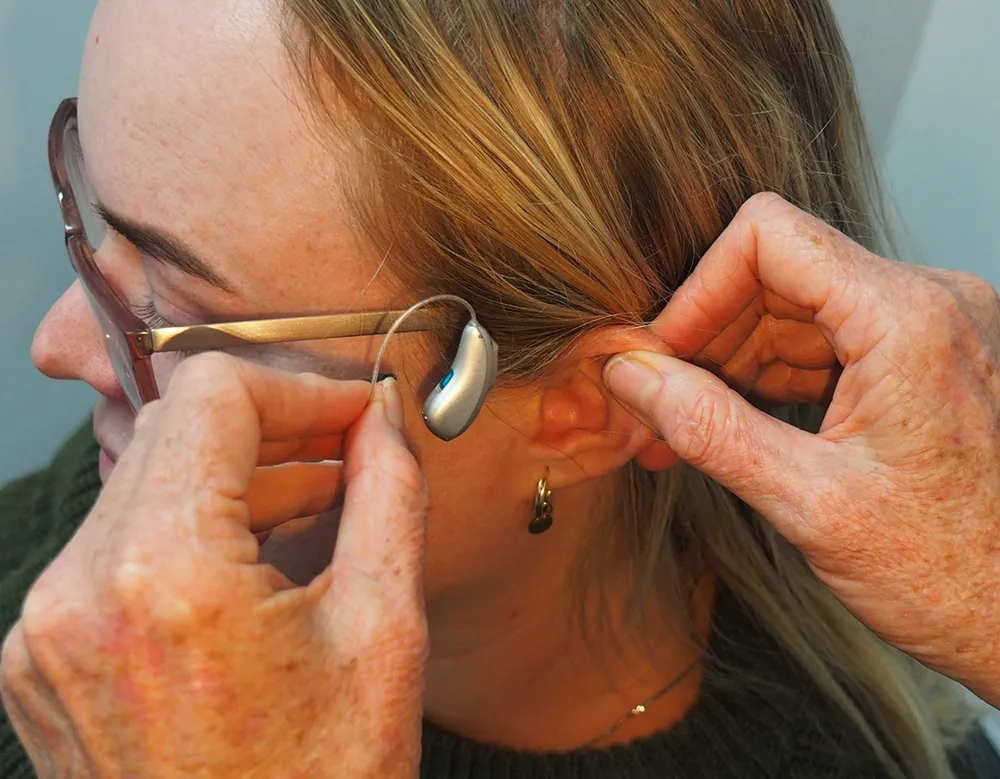
There’s nothing worse than returning home from your hearing aids appointment to discover you did in fact have more questions you needed to ask. If you aren’t a regular hearing aid user, you will certainly have a lot of questions you want answers to and there simply isn’t enough time in an appointment to cover all the groundwork. So let’s get started on the frequently asked questions about hearing aids!
How Do Hearing Aids Work?
Here’s how hearing aids work in three simple steps:
- The microphone receives sound and transforms this into a digital signal.
- The amplifier increases the strength of the digital signal.
- The speaker then produces the amplified sound into the ear.
How Do I Know If I Need A Hearing Aid?
Have you noticed deterioration in your hearing? Do you feel that your difficulty hearing is affecting your social and personal life? We want to find the best solution to your problem.
In some cases, a hearing aid might not be the correct method to help you hear better. With thorough testing and eliminating possible concerns, we can determine whether your hearing can be improved in other ways.
Why not book a hearing test with us today to find out whether you require hearing aids?
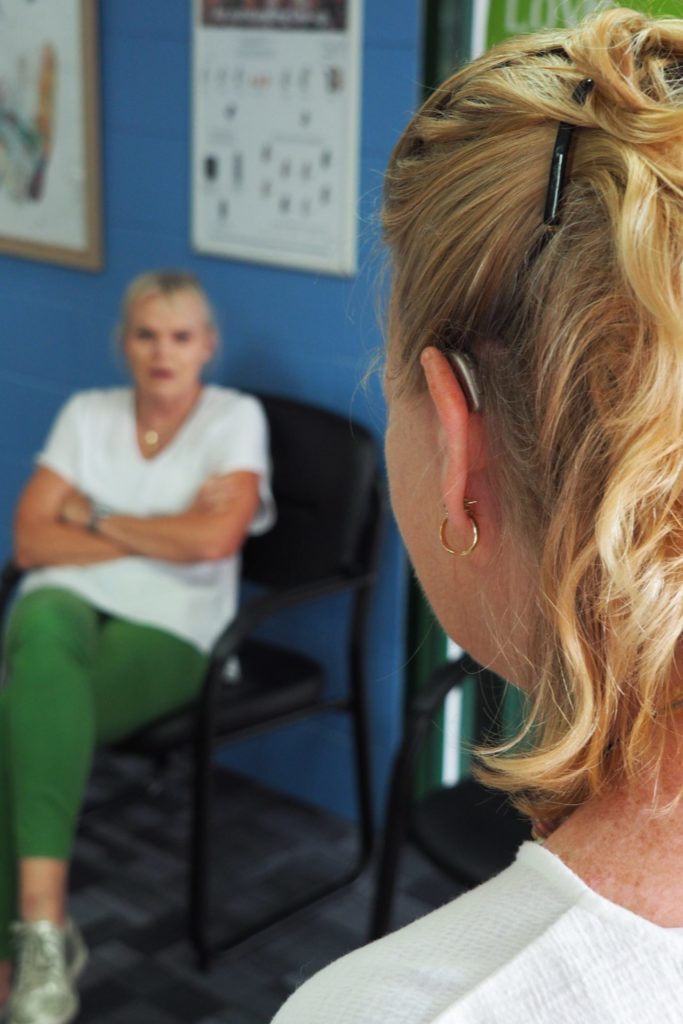
Will A Hearing Aid Restore My Hearing To Normal?
Due to the natural functioning of your ear, hearing aids can’t repair your hearing, nor can it prevent further deterioration over time.
However, it will certainly improve your current hearing difficulties. Much like reading glasses help you to read better, hearing aids help you to hear better.
Do I Need Two Hearing Aids?
Have you been diagnosed with hearing loss in both ears? Are you wondering whether you should be purchasing two hearing aids to help increase the chances of better hearing?
This is why we recommend you use two hearing aids for this matter:
You will gain a much better hearing quality in noisy environments. If the signal reaching the ear arrives at a slightly different moment in time, the time difference can help your brain process a speech signal more efficiently.
The source of sound is important. If you have a hearing aid in only one ear and you are having a discussion with a person on the opposite side of your hearing aid, a lot of the speech signal is lost by the time it arrives to your aided ear.
Your brain uses sound entering your ears from the right and left of your head to determine what direction the sound is coming from. If you have a hearing aid in only one ear, this can impact your sense of hearing direction.
What Are The Different Types Of Hearing Aids?
Aside from all the different brands you can invest in, such as Starkey, Oticon, Phonak etc. You will need to know the different styles of hearing aid. Believe it or not, they don’t all look exactly the same. Some are much more discreet than others. See below the different types of hearing aids on the market:
Receiver In Canal
RIC hearing aids are somewhere in between your BTE (behind the ear) and CIC (completely in canal) hearing aids. The adjustable part of the hearing aid sits behind your ear. This part is connected to a tube which discreetly travels over the top of your ear, into your ear canal.
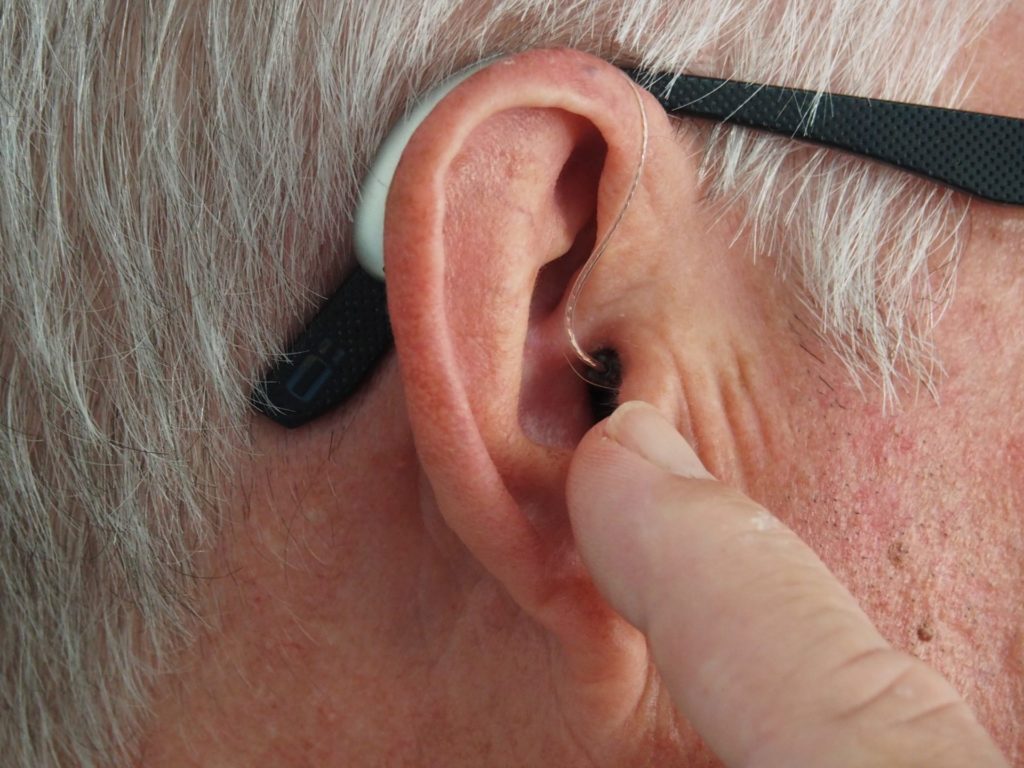
Completely In Canal & Invisible In Canal
If you’re looking for something more discreet, you can opt for the CIC/IIC hearing aid. These hearing aids are designed to fully sit inside your ear canal without displaying any parts externally.
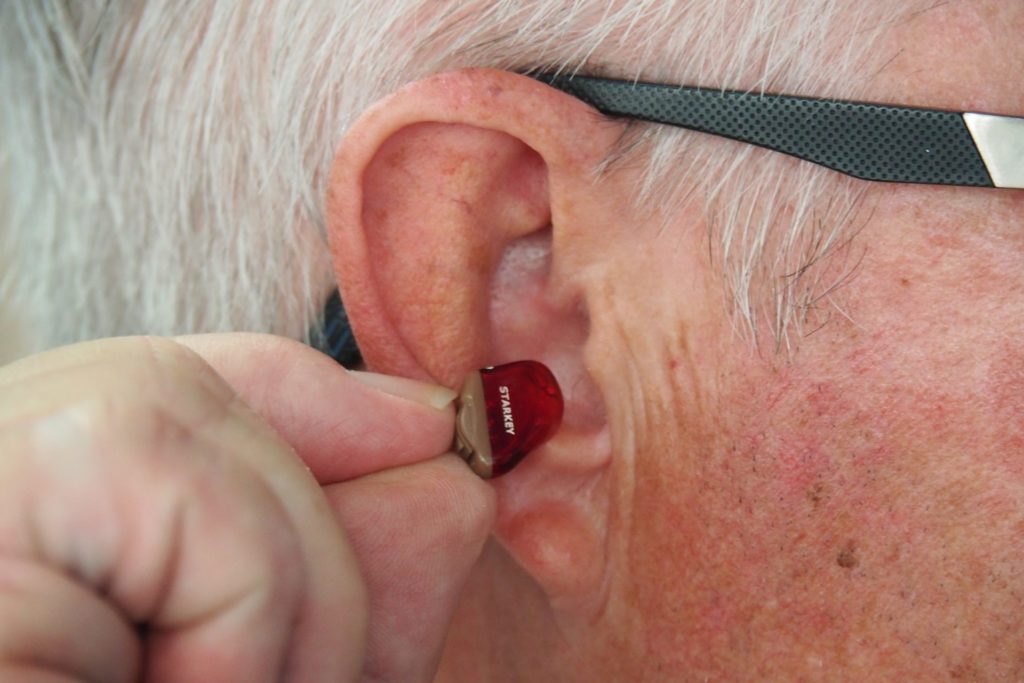
In The Ear, “Full Shell”
In the ear (ITE) hearing aids don’t enter your ear canal. Instead, they are designed to sit on your outer ear. Since our ears come in all different shapes and sizes, these hearing aids will be custom made to fit your ear.

Behind The Ear
Behind the ear (BTE) hearing aids are considered as the most common of hearing aids. Similar to the RIC hearing aids, the main part of this hearing aid sits behind your ear. A tube is then followed over the top of your ear and into a small ear mould that sits within your ear.
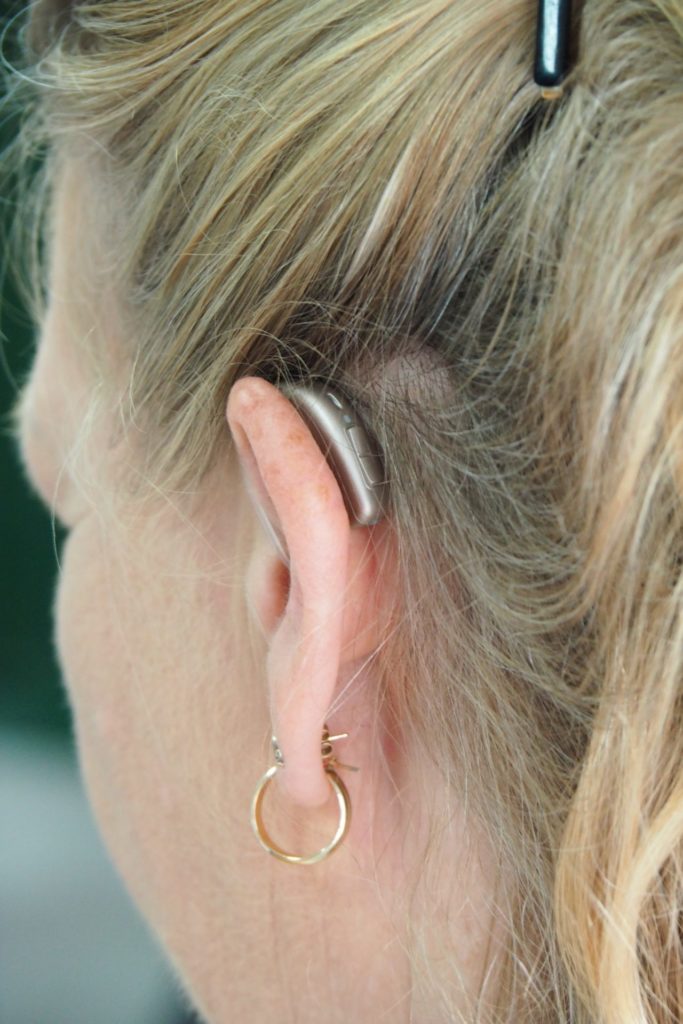
What Type Of Hearing Aid Should I Wear?
We can help you make the right choice of hearing aid based on how severe your hearing loss is. We’ll be able to determine the correct hearing aid based on your ears shape, the size of your ear canal, adjustability and any additional features you would like us to consider.
Nathan Gluck can guide you through the different styles and support your decisions based on your lifestyle choices. If you already use hearing aids and would like to replace them for something slightly different, book a consultation with us and we can happily advise you.
Why Are Hearing Aids Expensive?
It is important to consider the time and money invested by manufacturers who research and develop these products. In addition to this, a 1-2 year warranty is provided for loss and repairs in the overall purchase price. Hearing aids are designed to give you a better quality of life and this is done by providing sophisticated technology that is discreet and easy to use.
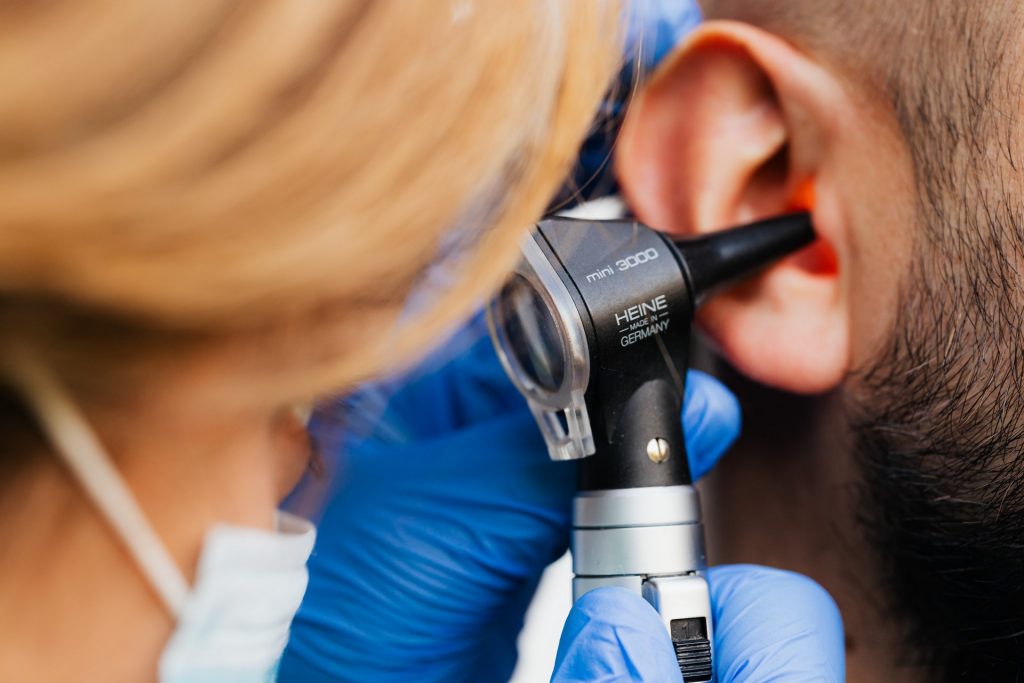
How Long Is The Adjustment Period For Hearing Aids?
Each individual will experience different adjustment periods. For some, they can hear sounds they either have never heard before or haven’t heard in many years. For others, it can be a slight adjustment that strengthens their hearing entirely.
Your brain processes or re-learns these new sounds from the central auditory system. Sometimes this process can take some time for your brain to adjust to these changes. Most hearing aids come with a 60-day trial period which allows you to adjust and adapt to your new sense of hearing.
This also provides you enough time to determine whether the hearing aids are the right fit and that you are benefitting from them. During this period it is important to ask us as many questions as you can so that we can assess whether these are the correct hearing aids for your needs.
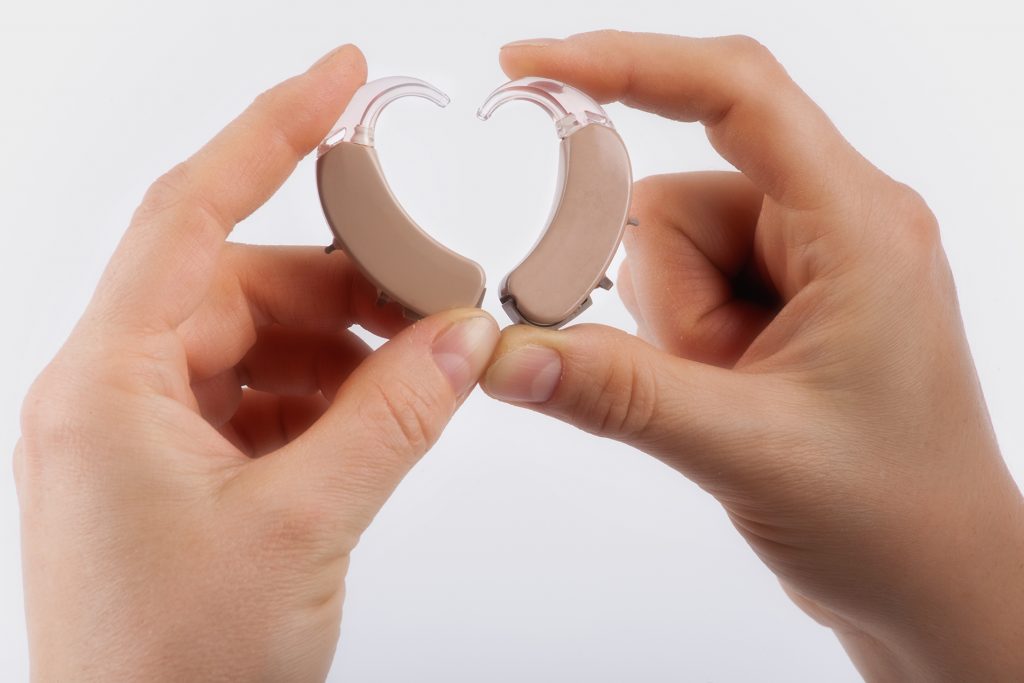
Why Are My Hearing Aids Whistling?
If you are new to hearing aids, it is no surprise that you are concerned about whistling sounds. It is common to experience this and most likely to happen occasionally throughout your hearing aid journey. Hearing aid whistling is also referred to as hearing aid feedback.
How Does Hearing Aid Feedback Occur?
You will experience hearing aid feedback when sound that should have travelled into your ear canal leaves your ear and reverts back into the microphone of your hearing aid. The sound will be re-amplified, causing whistling.
You can experience this feedback in situations like putting them on or taking them off. You can also experience this when you hug someone. It just means that your hearing aid is reacting to the sounds that bounce back from your surroundings.
Hearing aid feedback can also be a sign that something can be wrong with your hearing aid. It can mean they need to be cleaned or something slightly more serious which will require help from your audiologist. Book an appointment with us if you find that this issue isn’t going away.
Here are a few examples of why your hearing aid might be whistling:
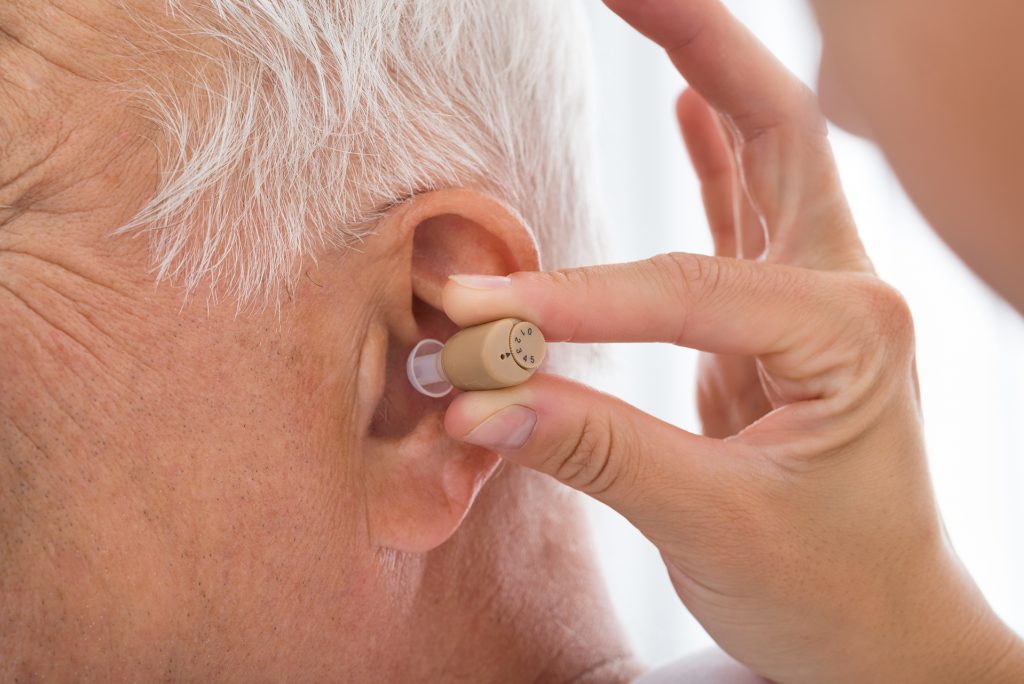
A Poor Fit
As our bodies change throughout the years, our ears do too! This means they could change in shape, which leads the earmolds to become loose. If sound travels away from your ear and jumps back into your hearing aids, you can experience feedback. In this instance you would need to return to your audiologist so that you can get new earmolds fitted to your ear.
If your hearing aids don’t fit properly inside your ear, sound can escape and re-enter the microphone of your hearing aid. Before you have them re-fitted, try re-positioning them in your ear. Ask someone, or visit us if you think you aren’t wearing them correctly.
High Volume
Understandably, sometimes you feel you would need to increase the volume of your hearing aid. This can lead to whistling if your hearing aid is too loud. Try lowering the volume of your hearing aid slightly, as part of your troubleshooting method.
Broken Tubing
Hearing aids that have a tube connected to the earmold can harden and shrink. This then means the tubing will begin to tug on the earmold, giving it an incorrect fit. You can easily fix this issue by visiting us for a new tube.
Earwax Build Up
If you suffer from frequent earwax build-up/blockage, it could very well be that sound cannot get through your ear canal due to all the wax accumulation.
If you have excessive earwax you run the risk of blocking your ear canal. This could also cause ear aches and potential damage to your hearing. It is important that you keep on top of your earwax build up especially when you are using hearing aids. Visit us for earwax removal.
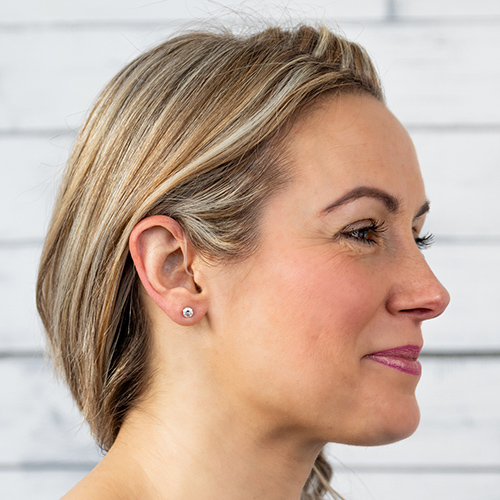
How Long Will My Hearing Aid Last?
Normally hearing aids perform at their optimum level for between 5-6 years. You can also repair them if they break or require a tuneup to increase their lifespan. With sufficient care, it is common for them to exceed their expected lifespan.
What Batteries Do Hearing Aids Require?
Zinc-air batteries are the most common used in hearing aids. Zinc-air batteries are designed for hearing aids and come in a variety of different sizes to match each device. Since it is important to always have charge in your hearing aid, you will likely find batteries in most stores that sell regular batteries such as pharmacies or grocery stores.
How Long Do Hearing Aid Batteries Last?
This depends entirely on the battery you use and how frequently (hours per day) you use your hearing aid. If you use smaller hearing aid batteries, you would expect to replace them weekly. If you use larger batteries you can expect to replace them once every 2-3 weeks.
Hearing Aid Insurance
If you’re a regular human being, it is completely normal for you to misplace or accidentally damage things. You kick yourself for it, but you won’t need to if you have the correct insurance plan to make sure you don’t fully suffer as a result of this.
Most hearing aids will be covered by the manufacturer for one-time loss and damage usually either for the first year or two after purchase. If you have purchased a hearing aid through us, or are looking to purchase one. Why not find out if you are and will be covered by simply contacting us.
If you are an existing home owner, you might care to add your hearing aid to your insurance plan. You can also use additional third-parties to cover loss and damage.
Conclusion
So that’s it for our FAQ blog post on hearing aids!
If you have any additional questions you would like to ask, please don’t hesitate to get in touch as we will happily answer any queries you may have.
Is your hearing aid not working correctly? Are you looking to buy hearing aids? Why not book in a consultation with Nathan Gluck for support on hearing aids or hearing tests.

